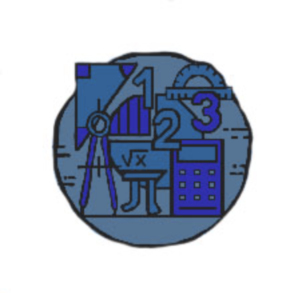As the school year starts, it’s no surprise that changes and additions have been implemented into ETHS’ curriculums. One controversial change has been the promotion of the Advanced Precalculus Honors course to an AP curriculum. While the curriculum remains largely unchanged, students can now receive a boost to the class’s GPA component and take an AP test towards the end of the school year for college credit. Announcement of the change has sparked a debate throughout the student base on the validity of the course.
As a student who just missed the integration of AP Precalc, I, along with many others, feel upset that I couldn’t receive the Advanced Placement perks for my completion of the course.
“I wouldn’t say it was the hardest class I’ve ever taken,” says Elliot Wexler, a junior in a similar position. “From what I’ve heard about AP classes, it does not strike me as an AP class.”
Had Wexler been able to capitalize on the AP curriculum, he “could have basically gotten free AP credit,” which, although not an enhancement of the course’s material, still stands as a valuable asset. A higher weighted GPA can be valuable when it comes time for college applications, and college credit from AP courses can save significant money as well.
But besides the course’s exclusion towards prior students, an essential factor when approaching these dilemmas is the issue that it aims to solve.
“It’s good that they’re making it an AP class. I think that this is going to expand access to some colleges because it’s going to expand access to AP credits,” says another junior, Serena Jones.

And this is a correct perception in part. Although the course remains mostly unchanged, more people deserve the opportunity to receive AP credit for more STEM fields. For example, before the implementation of AP Precalculus, you typically had to have taken geometry freshman year and continued on that track to earn the prerequisites for any AP math class. And although potential AP credit nevertheless stands as an invaluable tool, the list of colleges that accept college credit for AP precalculus has not yet been propagated. In fact, as of writing, you can’t even search for universities that accept AP Precalculus credit on the official College Board site. So if the presented opportunity to receive college credit remains an unsure asset, and its value on transcripts for college admissions remains unwavering to its AP status, then the ultimate benefit of the course becomes highly questionable.
“If it’s just going to be the same class, but I guess the college board gets to charge you for the AP test, I don’t see how that’s going to do anything,” says Wexler.
Yes, the course is mostly the same, and yes, not every college will accept AP credit from it, but at the end of the day, some still will, and that remains valuable for students, especially for those who did not originally have access to many math APs. And if a student determines that the class’s benefit doesn’t justify spending $97 for the AP test, then they don’t have to take it.
The College Board and the colleges associated with it, hold the responsibility to educate students so that they may critically analyze and decide in their interest whether or not they should take AP Precalculus instead of the regular version. Colleges and the College Board must display clarity in their acceptance of AP credit, and staff and students as a community must help each other consider education for students’ benefit.
The main motion that needs to be implemented by colleges is simply consideration of the course during college admissions. As long as college admissions officers remain true to the principle that a student who took Advanced Precalculus Honors mostly went through the same course as AP Precalculus, and hold the classes in a similar light when comparing transcripts, then college admissions can maintain parity while implementing the change. With appropriate consideration among students for course selection and honesty from the College Board, AP Precalculus can serve as an outlet for equity in the future of education. So let us begin the school year with a clear conscience and a scholarly passion.





